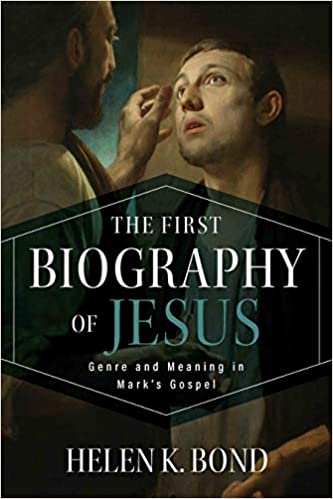BEN: Granting that ancient biographies sometime involve fiction (e.g. in the Gospel parables are clear examples), I wonder what you see as the dangers of using a methodology applied to novels to analyze ancient biographies. I am referring, among other things, to complaints about lack of character development, or even calling the persons mentioned in the narratives characters, as though they were actors in a play or created characters in a work of fiction? It does not seem to me that with either ancient historical monographs or genuine ancient biographies that the writers felt they had unfettered freedom to create characters or make up incidents in persons lives, such that figures like blind Bartimaeus should just be seen as foils for the presentation of the main character, or ‘stock figures’.
HELEN:
Yes, I would agree. In many respects what I’m doing is what we tend to understand as ‘narrative criticism’, though I would want to make a distinction between fictional novels and biographies. It always seems strange to me that narrative critics pay so little attention to genre (largely they just assume the gospels are short stories). ‘Character’ in a biography is very different in certain ways to its counterpart in an ancient novel. In a fictional novel, all we know about a character is contained within the novel itself, so it makes sense to talk of the narrative world, character development or arcs. The fundamental difference with a biography is that most of the time the biographer is dealing with real people who are known (to a greater or lesser extent) to the audience. So Mark’s original hearers don’t only form their judgement about Jesus from Mark’s biography; in all likelihood there are many stories and anecdotes swirling around in the collective memories of these early Christ-following groups. Mark’s work might push them to understand Jesus in a particular way (and my guess is that the ‘suffering Messiah’ side of things would be new to them), but this portrait simply develops and enhances what they know already.
This plays out particularly clearly in Mark’s description of the disciples. If we confine ourselves only to Mark’s story world, then Peter comes over quite badly, despite his apparent restoration in 16.7. If we understand Peter’s story against the knowledge that he went on to be a great missionary (and 1.16-20 clearly hints at this beyond the narrative world of the biography), then his early failure reads very differently. The problem is that we don’t know exactly what the first audiences knew about Peter, but my guess is that Mark’s stories of his lack of full understanding and denial only added to the portrait of the great apostle that they already held; perhaps it ‘humanized’ him, and made him easier for them to relate to.
But it would be wrong to take from this the idea that biographers didn’t sometimes deal in fiction. I read a lot of reflections by modern biographers for this project and was struck by how even what we’d call a ‘research biography’ today incorporates a degree of fiction. As biographers themselves acknowledge, fiction is an essential part in building a life. And often fiction is better at conveying the truth of a person’s character than more mundane anecdotes. There’s a great book on fiction in ancient biography edited by Koen de Temmerman and Kristoffel Demoen, where various authors note the extent to which it’s used even in ‘reliable’ biographers such as Suetonius, and especially in accounts of the subject’s death. So biography isn’t a fictional novel, but it’s important to acknowledge that there are acceptable levels of fiction within the genre.













